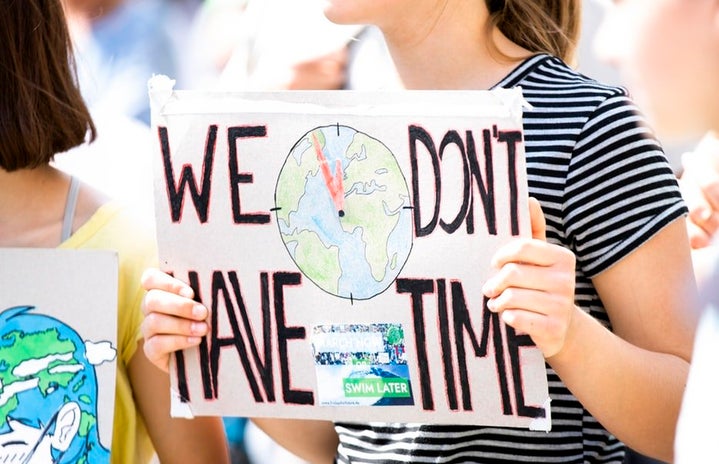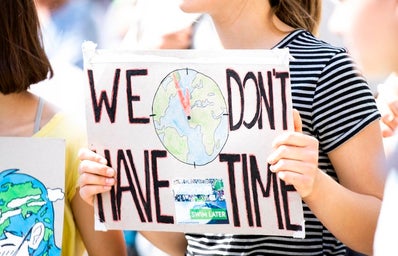On Thursday, The Boston Tea Party on Park Street was packed out with members of the student community who came for the launch of Bristol University Amnesty Society’s campaign ‘Climate Change is a Human Rights Issue’. Alongside opening words from Committee members and live music performances, food for thought was served by the two guest speakers: Sandy Hore-Ruthven, the Green Party Bristol Mayoral Candidate, and April Humble, an Extinction Rebellion Activist. But what is the campaign all about?
You don’t have to be particularly politically engaged to notice that the climate change conversation has gone mainstream. Environmentalism has skyrocketed and we have a more activist general public than ever before. As April Humble pointed out, even the politicised nature of the climate change debate is slowly breaking down. Yet arguably there are still elements of the movement that are problematic or in need of revising.
Often, we tend to focus on the climate crisis as just an ecological disaster, this malignant force devastating our ecosystems. Yet for humans, climate change is presented as a disaster yet-to-happen. The Independent reported the ‘”High likelihood of human civilisation coming to an end” by 2050’, and the Guardian published a feature this month titled ‘Climate change: do more now or risk catastrophe’. These articles use language rooted in the future and ignore the millions around the world currently suffering the ramifications of climate change. This is a highly Eurocentric viewpoint, and a result of our privilege that allows us to separate ourselves from the immediate consequences of global warming despite our being the primary cause of it.
Bristol University Amnesty Society is seeking to counteract this. Over the next five weeks, we will be holding a series of events and activities that focus on climate change specifically as a human rights issue.

Climate change is a feminist issue for a number of reasons relating to how women are disproportionately affected by poverty – for example being more vulnerable to drought and being forced into climate induced migration, as well as the link between areas affected by climate change and the heightened risk of gender-based violence. Our workshop will discuss how feminist issues like these intersect with climate change with a number of other society representatives followed by a ‘craftivism’ session.
Climate change is creating conflict around the globe and worsening conflict where it is already happening. It is often ignored that one of the greatest factors in Middle Eastern conflict is the scarcity of water, creating conflict over the Jordan River, accounting for increased human rights violations. Further inequalities are caused when the climate crisis intersects with racial inequality, not only because 7 of 10 of the countries most vulnerable to climate change are in Sub-Saharan Africa, but this issue is also closer to home with black ethnic minorities more likely to have their health implicated by high pollution levels in the UK. In addition, indegenous people are some of the worst affected by the climate crisis, such as the forced emigration from Greenland, due to the loss of ice, on which the local population rely to fish and sustain their way of life. The developing world is also disproportionately affected by climate change – for example due to adverse weather conditions causing food and sanitation shortages, which in itself is a human rights violation. This is the effects of western industrialisation, which is harming the countries least able to deal with the economic and humanitarian consequences. The workshop for developing world and climate change will include policy makers discussing how we from our privileged position can play a role in reducing the harm caused to these vulnerable nations.
The campaign will be rounded off with an art exhibition and auction on the 5th of December. The Amnesty Society at Bristol University invites you to all the workshops surrounding the issues raised, and also to join them in the climate strike on Friday the 29th of November to increase the awareness of the climate crisis and human rights violations in the local area and in the University.
This article is part of HC Bristol’s Sustainability themed week.




